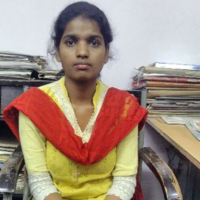
I had been placed with two different employers in Delhi before I met the National Domestic Workers Movement (NDWM). I wasn’t paid for the work that I did over two years, except for the absolute minimum that I needed to survive. My employers would shout at me, insult me and beat me.
Finally, I was given NDWM’s number, and the very next day after I called them, a staff member came to the house, accompanied by the police, and rescued me. My employers still didn’t pay me, but I was just so happy to leave that place anyway.
Narrative as told to Anti-Slavery International.









